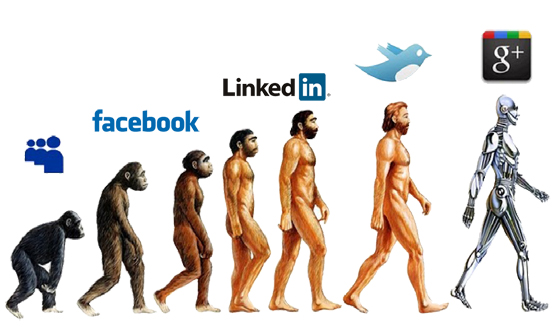I started blogging ten years ago when my book, TwentySomeone, came out (note the computer screen in the pic). Working on the website for the book, I wanted a way to post interesting links and speaking engagement details on the front page. My friend Will Leingang suggested adding a blog (which at the time I didn’t know was slang for “weblog”) but, because I trust Will in all things technology, I said sure.
This was one of the rare times in my technological life when I’ve been an early adopter. Back in the day, blogs were THE social media; we used them for posts, but also for those communiques that Twitter, Facebook, and Google+ (and about a dozen others) are now used – short sentence updates, interesting articles or links, and the ubiquitous personal opinion.
I miss those days, not because everything was in one place (though that was nice), but because there was usually actual interaction; it was enjoyable to read a comment thread that had some actual comments and didn’t just let one get away with the generic “Like” or “Favorite”.
The phenomenon of “liking” or “favoriting” something without explanation is interesting to me. I watch my online “friends” and “followers” drop “likes” and mark “favorites” on a variety of statements, declarations, questions, links, videos, song lyrics, poems, memes, and quotes and I sometimes wonder if they’re doing that out of actual reason or merely relationship.
The most interesting phenomenon (at least on Facebook) is what seems the obligatory “like” of the new profile picture. I’m struck by how – regardless of actual beauty – people are so quick to approve and at times (let’s be honest) lie out of some assumed responsibility that if they don’t, the person who just uploaded the profile picture will suffer some great self-esteem loss and throw themselves off a bridge.
“What a beautiful picture!”
“You’re so hot!”
“What a gorgeous family!”
I suppose there are plenty of people who want, need, and look for comments like these to justify their existence, but there are also those of us who think of the profile picture as simply an identifier and nothing more. Forgive us for not swooning over your latest profile update – it’s not personal, even though you might take it to be so.
Another thing I’ve found interesting over the past ten years of blogging and “being social” online is how much time it takes to really do well. The media are different, but they all require intentionality to do them right. Twitter’s 140 characters force one to be uber-succinct, whereas a blog (at least that folks read) demands interesting writing since something else is always one quick click away. Facebook posts tend to benefit from some kind of photo or artwork to break up the design monotony, but I still haven’t figured out to what Google+ best lends itself as I really don’t use it all that much even though I feel semi-guilty that I should as it seems strangely superior as this “social evolution” art implies:
All of this – uber-succinctness, writing worth reading, finding and uploading pics and art – requires dedicated time, a commodity most of us find only in small amounts. It may just be my particular stage in life, but where I once used to think that the key to writing productivity lay in using and mastering 15-minute bites, I now am down to trying to make the most of 5-minute ones. This works well enough for tweets and updates, but not so much for blog posts and books.
While I’ve taken a few hiatuses from social media (the longest being an intentional six-month respite from blogging), I’ve never thought seriously about quitting (though like an alcoholic or chain smoker, I promise I can quit anytime). I’ve read and even written about the dangers of social media (click here to read multiple years’ worth of my posts on this topic and technology), but I still find it engaging and stimulating – not as a replacement for books, but neither as a complete waste of time either.
So I’ll continue blogging, tweeting, and posting, and thank you in advance for reading, retweeting, and sharing. I’m not sure why you do, but I confess I’m glad for it, much like I imagine the person posting a new profile picture probably appreciates the comments.
Just don’t lie to me and call me “hot”.

